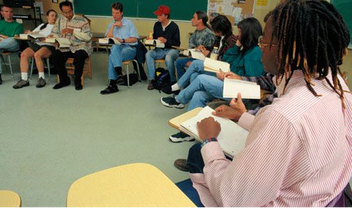We are experiencing an economic crisis. Jobs are being lost. Making ends meet is difficult. We are in the midst of a war. Conflict grows in our relationships, which causes fracture or the end of those relationships. Health problems consume our time, energy, and resources. Addictions control our lives.
Everywhere you turn, there are reasons to be worried. The message being communicated again and again is “be anxious about everything.” To be fair, all those things listed above are significant. None can be solved by a snap of our fingers, though we often wish they could. So, how do we respond in the midst of so many reasons to be anxious?
As we explore anxiety, I want to acknowledge that it is a complex topic. This article can only hope to scratch the surface. I share the following thoughts not to be a quick fix but to be a start, continuation, or affirmation of a process in your life.
For as long as I can remember, my mind has easily slipped into obsessively anxious patterns. An example of my internal dialog would have gone something like this:
Everywhere you turn, there are reasons to be worried. The message being communicated again and again is “be anxious about everything.” To be fair, all those things listed above are significant. None can be solved by a snap of our fingers, though we often wish they could. So, how do we respond in the midst of so many reasons to be anxious?
As we explore anxiety, I want to acknowledge that it is a complex topic. This article can only hope to scratch the surface. I share the following thoughts not to be a quick fix but to be a start, continuation, or affirmation of a process in your life.
For as long as I can remember, my mind has easily slipped into obsessively anxious patterns. An example of my internal dialog would have gone something like this:










 RSS Feed
RSS Feed